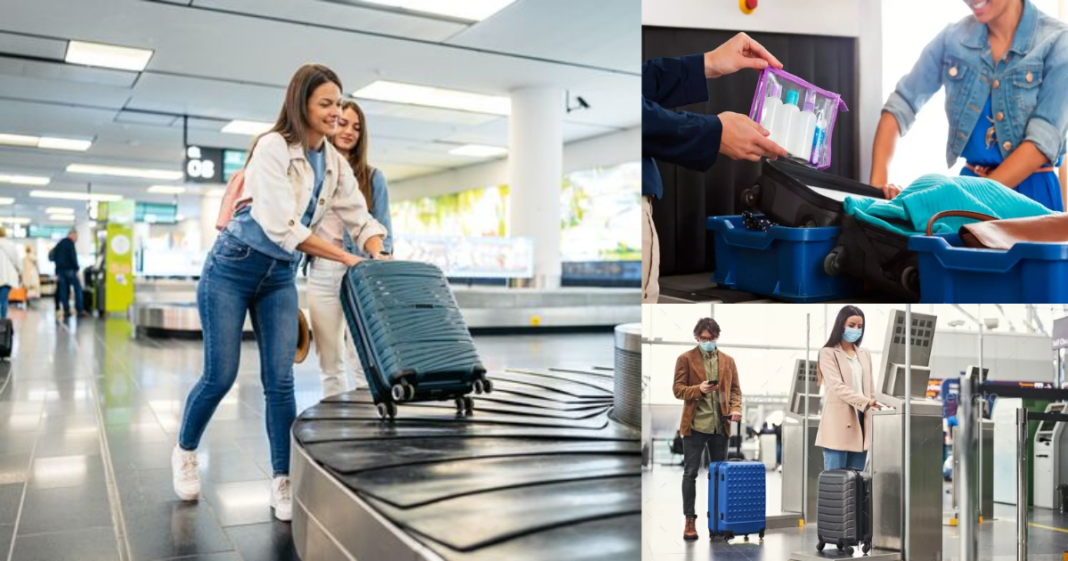Packing for a trip usually seems straightforward. However, certain countries enforce unexpected restrictions on specific items, which can catch even seasoned travelers off guard. While liquids over 100ml and dangerous objects are commonly banned, some prohibited items vary drastically from one destination to another.
Carrying forbidden goods can lead to fines, legal trouble, or even imprisonment. Therefore, researching local regulations before packing is essential. Many of these bans have been enforced to protect national industries, security, or the environment. To avoid unnecessary delays or penalties, understanding these surprising restrictions is highly recommended.
Alcohol is Prohibited in the Maldives
The Maldives is a stunning island destination, but strict laws regulate what visitors can bring. Alcohol is one of the most unexpected items that travelers are not allowed to carry. While many resorts serve alcoholic beverages, bringing personal supplies is strictly prohibited.
The Maldives High Commission has confirmed that all alcohol is confiscated upon arrival. Since the country follows Islamic law, alcoholic beverages are not permitted on local islands. Along with alcohol, firearms, idols of worship, and pork products are also banned. However, some of these items are available under special licenses at resort islands.
E-Cigarettes Are Banned in Thailand
While e-cigarettes are widely used worldwide, they are completely banned in Thailand. The Thai government introduced this ban in 2014, citing health concerns and the potential for vaping to encourage smoking among youth.
Tourists often assume that minor infractions go unnoticed, but bringing e-cigarettes into Thailand can lead to severe consequences. The Thai Embassy has stated that travelers risk confiscation, heavy fines, or even imprisonment for possessing vaping devices. Thus, leaving these items behind is strongly advised before visiting Thailand.
Drone Restrictions in Morocco
Drones are commonly used for photography and recreational purposes, yet they cannot be brought into Morocco without prior authorization. Since 2015, strict regulations have been enforced due to security and privacy concerns.
Authorities impose severe penalties on those attempting to carry drones without permission. Any drones found are immediately confiscated, and fines or legal action may be taken. Even professionals who require drone use must obtain government approval. Furthermore, drone usage near military zones and airports remains strictly controlled.
Walkie-Talkies Are Restricted in India
Although walkie-talkies are not completely banned in India, strict regulations govern their usage. Travelers are required to obtain a license under the Wireless Telegraphy Act to bring or use them. Those without proper authorization risk confiscation, fines, or even legal action.
Certain low-powered models may be used without a license, but their range is significantly limited. Families traveling with children should avoid bringing toy walkie-talkies to prevent any misunderstandings at customs. To stay compliant, it is best to review the local regulations before packing these devices.
Poppy Seeds Are Illegal in Saudi Arabia
Bringing poppy seeds into Saudi Arabia can lead to serious consequences. The country’s drug laws are extremely strict, and possession of poppy seeds is considered a violation. Even small amounts can trigger arrest, detention, or deportation.
Authorities associate poppy seeds with narcotics, despite their common use in baking and cooking. Consequently, carrying them into the country is strongly discouraged. Travelers should avoid food products containing poppy seeds to prevent unnecessary trouble.
Police Whistles Are Forbidden in Guatemala
Guatemala enforces an unusual restriction that often surprises visitors. Police-style whistles are prohibited, and carrying one may lead to confiscation or fines.
The reason for this ban is rooted in security concerns. Many individuals used these whistles to impersonate law enforcement officers, leading to a strict crackdown. Although a whistle may seem like an innocent item, it is best to leave it behind when traveling to Guatemala.
Plastic Bags Are Not Allowed in Rwanda
Rwanda has taken a firm stance against plastic waste. Since 2008, non-biodegradable plastic bags have been completely banned. Travelers arriving with plastic bags can expect them to be confiscated at customs.
This policy aims to reduce pollution and protect the environment. As a result, luggage checks are conducted to ensure compliance. Visitors are encouraged to use eco-friendly alternatives such as paper or reusable fabric bags.
Unexpected Travel Bans You Must Know
International travel requires careful preparation, and being aware of unexpected restrictions is crucial. Some bans, such as those on alcohol, e-cigarettes, and drones, are enforced for cultural or security reasons. Others, including poppy seeds, whistles, and plastic bags, may seem unusual but carry serious consequences.
To avoid disruptions, travelers should research customs regulations before packing. By understanding the rules of each destination, one can ensure a smooth and hassle-free travel experience while staying compliant with local laws.



